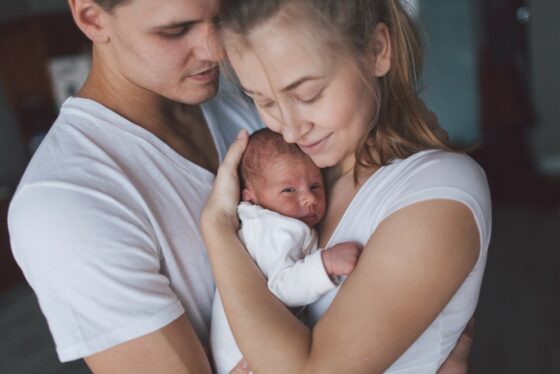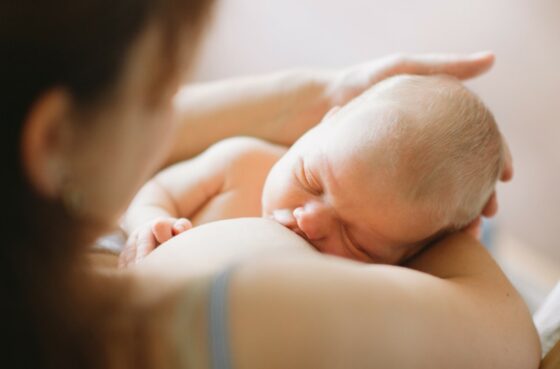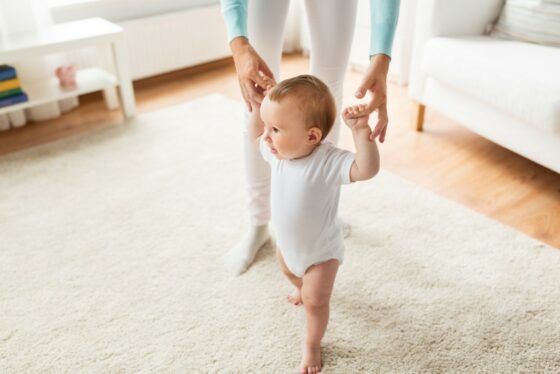The first four weeks of your little one’s life can pass in a blur of feeding, cuddling and sleeping. Here are some of the milestones and behaviours to look out for with your precious one-month-old.
Feeding your baby
One of the first challenges for new mums is feeding. Breastfeeding is best for babies and is recommended exclusively for around the first six months, so it’s worth persevering if you’re having problems. While some mums are unable to breast feed, support is available and professional advice should be sought before using alternatives.
Your baby will be hungry, and will probably need regular feeds day and night. A typical feed is digested in just 90 minutes, so frequent feeding is completely normal. Waking often during the night for feeds is also protective of things like SUDI (sudden unexplained death in infancy).
Remember to drink more water than usual – you need to up your liquid intake to compensate for breastfeeding and to avoid constipation.
Sleep and settling
It usually takes several months for babies to develop a sleeping routine, so it’s perfectly normal for your baby to cry and have trouble settling. At just one month, your baby will be setting their own timetable – waking, feeding and sleeping around every 2.5-3.5 hours. If crying, you should always attend to them at this age as your baby does not know how to self-settle just yet. If you’re having trouble settling your little one, try a change of scenery – a bath or going for a walk are great ways to calm your bub down and reduce your own anxiety.
Trapped gut wind is also a common reason for an unsettled baby in these early months, and it’s completely normal due to their poor gut tone. Tummy time over your thigh, baby’s knees to chest, bicycle movements with baby’s legs and clockwise tummy massage can all be great ways to help make your baby feel more comfortable.
Time to play
Skin-to-skin contact helps form an emotional bond between you and your baby. Cuddles, gentle massages, snoozes on your tummy, and moving arms and legs all promote emotional closeness and wellbeing in bub and mum.
At this age they can only see objects roughly 10cm from their face and distinguish light from dark, kind of like black and white. Touch is their biggest sense so getting hands on is best.
Baby’s developmental milestones
- Mouthing and grasping reflexes
- Recognising familiar faces and sounds
- Lifting their head when having tummy time, and moving it in response to touch
- Cooing and making other adorable noises
Check your calendar
- Your baby should have received a Hepatitis B immunisation at birth
- By the end of month one, you’ll probably have had a home visit from a Maternal and Child Health Nurse, and attended a centre for a two-week and four-week visit
- You’ll be tired and busy, but make sure you get out for a few short walks or a trip to the shops, both with and without your little one
Want to know more? Call us on 1800 842 098 or Live Chat now.
Please note: These articles are meant to give you a general sense of the growth and development of your newborn baby. However, it’s important to remember that every baby grows and develops at their own pace.

Related articles

Handy tips for new parents
To help you care for your newborn baby, here are some practical tips on changing nappies, burping and bathing.

Breast feeding basics: positioning
It takes time to work out which breast feeding position is most comfortable for you and your baby. But it’s worth persevering.

Your baby's biggest milestones: when will they happen?
In the first 18 months of life, your baby will grow, learn and develop faster than any other time in life.
